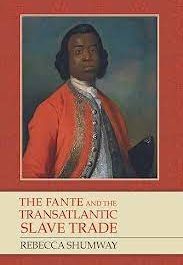Showing 154–162 of 172 results
The Bakassi Dispute and the International Court of Justice
15,525.00$On the 10th of October 2002 the International Court of Justice delivered the Bakassi decision, which, amongst other things, excised the resource rich land and maritime territory of Bakassi from Nigeria and transferred its legal title to Cameroon. These two countries under the auspices of the United Nations established the mechanism of the Cameroon-Nigeria Mixed Commission to honour and implement their obligations under the ICJ decision. Over a decade after the ICJ decision this volume brings together academics and practitioners to assess the impact of this decision and the challenges and issues that have been raised in the course of its implementation. Hailed by some as a model of preventive diplomacy and a blueprint for the future, this timely assessment illuminates the difficulties in imposing such controversial decisions and considers whether this type of Mixed Commission is an adequate mechanism for implementing them.
The Cry of the Go-Away Bird
1,200.00$The Cry of the Go-Away Bird’ is the debut novel from Andrea Eames. It revolves around Elise, a white Zimbabwean girl living through her teens on the eve of the Mugabe-sponsored farm invasions at the beginning of this century. The author herself grew up in Zimbabwe before moving to New Zealand with her family at the age of seventeen and there is a strong sense of memoir and personal experience in the novel, which has both positive and negative effects on the narrative.
The main character is drawn very effectively. The natural anxieties felt when emerging into an adult world are uncannily accurate, and allow the reader to relate to Elise and her family as their experiences later become more extreme. However, sometimes the story is so personal that it verges on one-sided. There is more variety, and a more complex array of emotions and motivations among the white characters than the black ones. The black characters are unfathomable and often sinister. Perhaps this is how Elise really sees them, but the novel could have perhaps painted a more complex picture for the reader of the spectrum of attitudes surrounding these massive social upheavals.
Eames makes various attempts to describe the fragile nature of race relations in post-independence Zimbabwe. Often she succeeds admirably, as when Elise’s parents invite a black farm-worker and his wife over for dinner in an effort to make friends. The awkwardness felt by all is palpable and it is a fine piece of writing. Eames clearly has a talent for describing a society in microcosm. There are examples of Eames’ considerable powers of observation elsewhere in the book too. Of the ‘Bush War’ (or War of Independence) it is said, The war felt like a death in the family – someone whose name was never mentioned, who was cut out of photographs. Of Mugabe, Elise says, He was like a hated Headmaster, overbearing and incompetent, towards whom you felt a kind of loyalty. This metaphor demonstrates that Eames is certainly able to express complicated emotions in a clear and artful manner.
There are, however, times in the novel when the writing fails in this respect. Sentences such as We were Whites, and nothing else and The air between us was a different colour, are clumsy and blunt, and have a taste of bitterness that the story does not benefit from.
The action in the novel is heavily weighted towards the last half, when the actual farm invasions and killings of farmers are taking place. In these pages the book does become compelling. Eames successfully renders the panicked atmosphere of a rapidly crumbling way of life, and the events feel both real and shocking.
Overall, though well written, the novel is trying to tell too many stories in too many ways. Elise’s story is cut-off by the dramatic political events occurring, but those events appear as from nowhere and lack real context. The book is still worth reading for a glimpse into this interesting and unfamiliar world, but there may be better novels to come from Andrea Eames.
The enforcement of offender supervision in Europe
14,175.00$This book provides a comparative analysis of the process of breach across ten different European jurisdictions by identifying and elaborating a number of key analytical themes through which the different systems can be compared and evaluated. It is informed by and hopes to advance the research activities of the COST Action IS1106 on Offender Supervision in Europe, particularly the Action’s work on developing new comparative methodologies to examine the process of decision-making involved in the breaching of offenders for non-compliance.
This volume consists of country chapters and thematic chapters. Analyses are based on exhaustive reviews of the literature available in each jurisdiction as well as the results of an empirical pilot study to provide a unique and valuable insight into current practice as well as enhancing our understanding of the contingencies and vagaries of the processes of breach as they exist in both civil and common law European jurisdictions. The key themes and emerging concerns that are explored include: the roles and responsibilities of the different actors involved in the breach process; the degree and nature of discretion exercised by decision-makers; and legitimacy, due process and procedural requirements of breach processes both from a pan-European and from a comparative perspective.
This book will be of interest to criminal lawyers and criminologists, policy makers, criminal justice practitioners, probation workers and students of criminal justice studies across Europe. Comparative insight into the decision-making processes of breach across Europe will also be of interest to American, Canadian and Australian audiences seeking comparisons with their own systems.
The Fante and the Transatlantic Slave Trade-Paperback
995.00$The Fante and the Transatlantic Slave Trade explores the fascinating history of the transatlantic slave trade on Ghana’s coast between 1700 and 1807. Author Rebecca Shumway brings to life the survival experiences of southern Ghanaians as they became both victims of continuous violence and successful brokers of enslaved human beings. The era of the slave trade gave birth to a new culture in this part of West Africa, just as it was giving birth to new cultures across the Americas. The Fante and the Transatlantic Slave Trade pushes Asante scholarship to the forefront of African diaspora and Atlantic World studies by showing the integral role of Fante middlemen and transatlantic trade in the development of the Asante economy prior to 1807.
The Handbook of Medical Image Perception and Techniques
10,000.00$This state-of-the-art book reviews key issues and methods in medical image perception research through associated techniques, illustrations and examples. Written by key figures in the field, the book covers a range of topics including the history of medical image perception research, the basics of vision and cognition, and dedicated application areas, especially those concerned with the interface between the clinician and the display of medical image data. It summarizes many of the basic techniques used to conduct and analyze medical image perception and observer performance research, allowing readers to understand basic research techniques so they can adopt them for use in their own studies. Written for both newcomers to the field and experienced researchers, this book provides a broad overview of medical image perception, and will serve as a reference volume for years to come
The International Criminal Court and Nigeria
15,525.00$If Nigeria fails to prosecute the crimes recognised under the Rome Statute, then the International Criminal Court (ICC) will intervene. The ICC is only expected to complement the criminal justice system in Nigeria and is not a court of first instance, but one of last resort. This is what is known as the principle of complementarity. Before the ICC can step in, it must make a finding of ‘unwillingness’ or ‘inability’ on the part of Nigeria. It is only after this finding is made that the ICC can take over the prosecution of the crimes recognised under the Statute from Nigeria. This book examines the criminal justice process in Nigeria and discovers that the justice system is latent with the requirements of ‘unwillingness’ and ‘inability.’ The requirements, which serve as tests for assessment, are as they are laid down by the Rome Statute and interpreted by the ICC. This book offers recommendations as to what Nigeria must do in order to avoid the ICC intervention by reversing those parameters that give rise to ‘unwillingness’ and ‘inability.’
The International Criminal Court and Nigeria: Implementing the Complementarity Principle of the Rome Statute offers a contribution to the advancement of international law and will be of practical use to African countries. It aims to sensitise policy makers in different African countries in respect of policy options open to them to close impunity gap in their respective countries. This volume addresses the topics with regard to international criminal law and comparative public law and will be of interest to researchers, academics, organizations, and students in the fields of international law, governance, and comparative criminal justice.
The political Economy of punishment Today
14,175.00$Over the last fifteen years, the analytical field of punishment and society has witnessed an increase of research developing the connection between economic processes and the evolution of penality from different standpoints, focusing particularly on the increase of rates of incarceration in relation to the transformations of neoliberal capitalism.
Bringing together leading researchers from diverse geographical contexts, this book reframes the theoretical field of the political economy of punishment, analysing penality within the current economic situation and connecting contemporary penal changes with political and cultural processes. It challenges the traditional and common sense understanding of imprisonment as ‘exclusion’ and posits a more promising concept of imprisonment as a ‘differential’ or ‘subordinate’ form of ‘inclusion’.
This groundbreaking book will be a key text for scholars who are working in the field of punishment and society as well as reaching a broader audience within law, sociology, economics, criminology and criminal justice studies
The Politics and Law of Democratic Transition
14,175.00$This book provides a contextual analysis of the CTG mechanism including its inception, operation, manipulation by the government of the day and abrupt demise. It queries whether this constitutional provision, even if presently abolished after overseeing four acceptable general elections, actually remains a crucial tool to safeguard free and fair elections in Bangladesh. Given the backdrop of the culture of mistrust, the author examines whether holding national elections without a CTG, or an umpire of some kind, can settle the issue of credibility of a given government.
The book portrays that even the management of elections is a matter of applying pluralist approaches. Considering the historical legacy and contemporary political trajectory of Bangladesh, the cause of deep-rooted mistrust is examined to better understand the rationale for the requirement, emergence and workings of the CTG structure.
The book unveils that it is not only the lack of nation-building measures and governments’ wish to remain in power at any cost which lay behind the problems that Bangladesh faces today. Part of the problem is also the flawed logic of nation-building on the foundation of Western democratic norms which may be unsuitable in a South Asian cultural environment. Although democratic transitions, on the crutch of the CTG, have been useful in moments of crisis, its abolition creates the need for a new or revised transitional modality – perhaps akin to the CTG ethos – to oversee electoral governance, which will have to be renegotiated by the polity based on the people’s will.
The book provides a valuable resource for researchers and academics working in the area of constitutional law, democratic transition, legal pluralism and election law.









